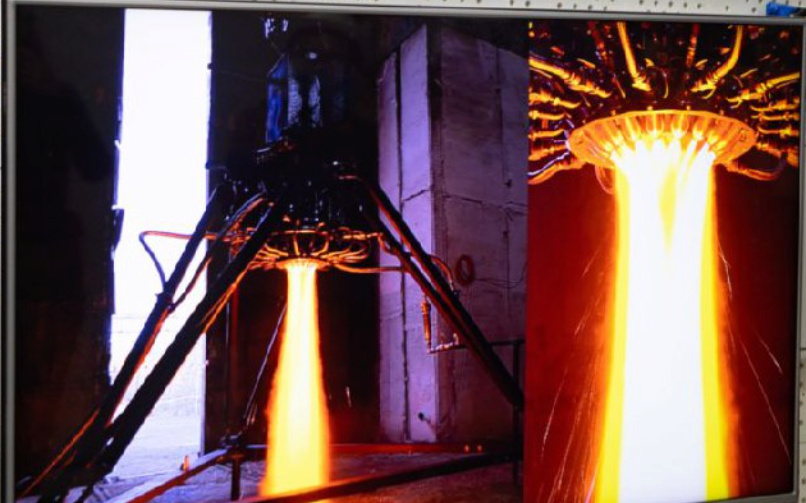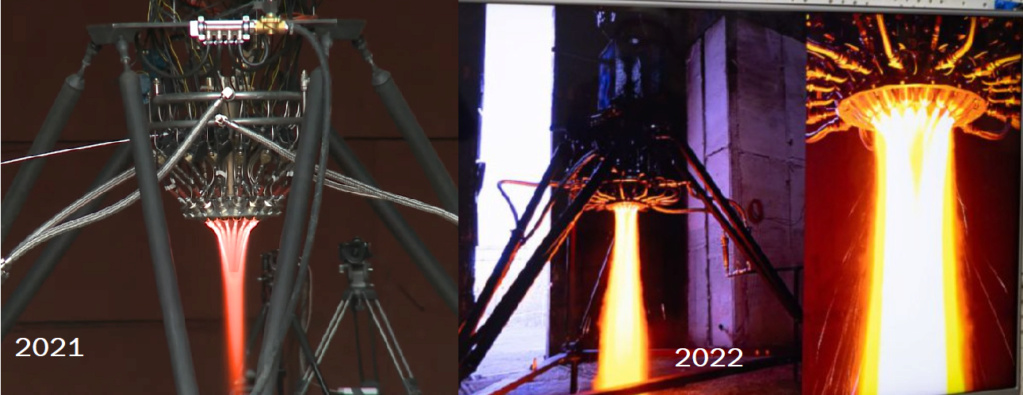 Kiko Sat Dec 17, 2022 12:42 pm
Kiko Sat Dec 17, 2022 12:42 pm
Russia will create a new plasma engine that will be used in deep space missions - what does it look like?, 12.17.2022.
The new engine will "need a nuclear power source" to work. Initially it will conduct "interplanetary flights, and in the future - flights to the edge of the solar system."
Russian scientists are building a new two-stage electrodeless plasma engine that will have the ability to electrically propel a spacecraft into deep space, the general director of the state-owned OKB Fakel company, Gennady Abramenkov, reported last week.
According to Abramenkov, the project of the "very high-power electric rocket motor, known as BPRD" (Russian acronym for 'electrodeless plasma rocket motor'), is being developed by the company under his charge with the scientific advice of the Kurchatov Institute.
The new engine, which "will need a nuclear power source" to work, will initially perform "interplanetary flights and, in the future, flights to the edge of the solar system."
As for its operation, Abramenkov explained that, being a plasma-based engine, this compound will flow through the central channel of the engine at high temperatures, so, "if it were not protected in any way, the entire central channel would burn out quickly or be completely consumed."
In addition, in order for the plasma to flow constantly without touching the walls of the central channel, for the purpose of creating the pushing force of the motor, these walls must be "effectively cooled", besides a high-density magnetic field must be generated inside the central channel. The official specified that the construction of the engine will take a long time, since the company is working for the first time with new physical principles and processes.
The SPD-230
On the other hand, Abramenkov announced that the tests of the new high-power stationary plasma thruster SPD-230, which was designed to significantly increase the mass of the payload put into orbit, have been completed.
"For the SPD-230, we have completed the development for the Roscosmos state corporation and the entire development test cycle," Abramenkov said, noting that the engine was completed ahead of schedule, so "there are no appliances for the engine yet," referring to the nuclear power source.
The director of OKB Fakel points out that his company is analyzing which spacecraft these new engines should be placed on, stating that they will be able to offer it "in various projects," including flights to the Moon, in order to "solve the problems" in the ships to reintroduce them into orbit. Abramenkov specified that they are studying the possibility of putting a spacecraft with stationary plasma engines into orbit without an upper stage.
OKB Fakel is considered one of the leading companies in Russia and the world in the development and manufacture of electric propulsion systems for spacecraft based on stationary plasma engines. These engines have the advantage of consuming less propellant than chemical combustion rockets, which lowers the cost of space missions. The engines they have built were installed on Russian and foreign satellite devices, including those of the GLONASS constellation.
Yandex Translate from Spanish
https://actualidad.rt.com/actualidad/452174-rusia-crear-motor-plasma-misiones-espacio-profundo












